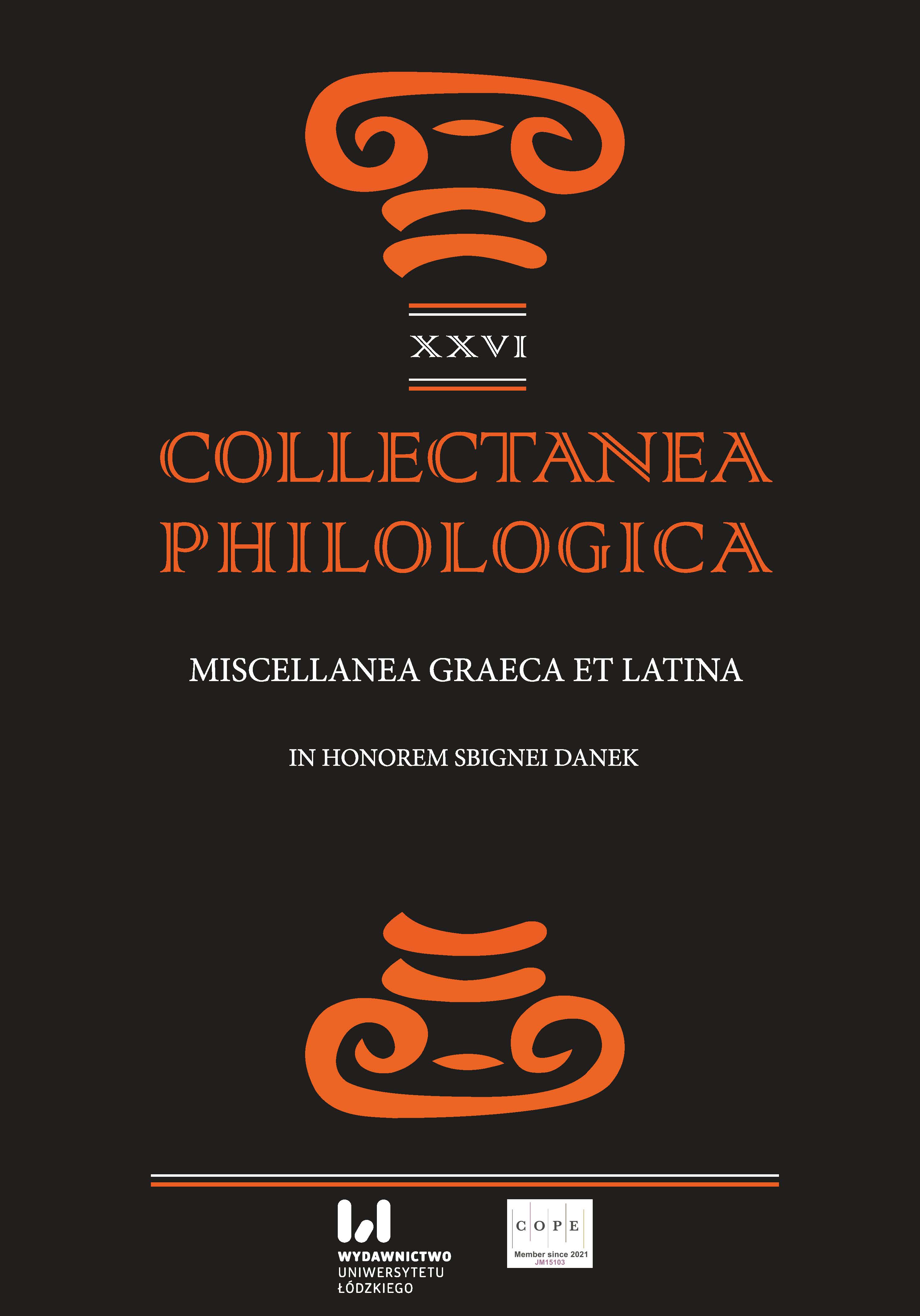Owidiusz, Amory III 1 w polskim przekładzie
DOI:
https://doi.org/10.18778/1733-0319.26.11Słowa kluczowe:
Owidiusz, elegia, tragedia, recusatio, gra, AmoresAbstrakt
The paper aims to show the new Polish translation with a brief introduction. The elegy seems to be especially interesting as the way of poetical recusatio and the sophisticated game with the reader.
Bibliografia
Barchiesi, A. (1997). The Endgames in Ovid’s Metamorphoses 15 and Fasti 6. In: D.H. Roberts, F.M. Funn, D. Fowler (eds.). Classical Closure. Reading the End in Greek and Latin Literature. Princeton: Princeton University Press. 181–208.
Google Scholar
Coleman, K.M. (2010). “Cacemphaton in the Labyrinth: Ovid, “Heroides” 10.71”. Mnemosyne. Vol. 63, fasc. 2. Publishers: Brill. 280–286.
Google Scholar
DOI: https://doi.org/10.1163/156852510X456552
Courtney, E. (1988). Some Literary Jokes in Ovid’s “Amores”. Bulletin Supplement (University of London. Institute of Classical Studies) 51. Vir Bonus Discendi Peritus: Studies in Celebration of Otto Skutsch’s Eightieth Birthday (1998): University of London, Institute of Classics. 18–23. https://doi.org/10.1111/j.2041-5370.1988.tb02006.x
Google Scholar
DOI: https://doi.org/10.1111/j.2041-5370.1988.tb02006.x
Ovid. (1914). Heroides and Amores. G. Showerman (ed.). London, New York: Harvard University Press.
Google Scholar
DOI: https://doi.org/10.4159/DLCL.ovid-heroides.1914
Sharrock, A. (2002). Ovid and the discourse of love: the amatory works. In: P. Hardie (ed.). Cambridge Companion to Ovid. Cambridge: Cambridge University Press. 50–162. https://doi.org/10.1017/CCOL0521772818
Google Scholar
DOI: https://doi.org/10.1017/CCOL0521772818.011
Skwara, E. (2008). „«Muza na nierównych kołach», czyli o przekładzie dystychu elegijnego w «Ars amatoria» Owidiusza”. Przekładaniec 1–2/2007. Nr 18–19: Wydział Polonistyki UJ. 55–71.
Google Scholar
Wesołowska, E. (2022). „Jak powiedzieć, żeby nie powiedzieć (lub odwrotnie), czyli kłopoty z przekładem elegii Ex P. IV 12”. Symbolae Philologorum Posnaniensium XXXII, 2: 77–86. Wydawnictwo Naukowe UAM. https://doi.org/10.14746/sppgl.2022.XXXII.2.5
Google Scholar
DOI: https://doi.org/10.14746/sppgl.2022.XXXII.2.5
Zarzycka-Stańczak, K. (1981). Nasonis tres libelli. O debiucie poetyckim Owidiusza. Lublin: Redakcja Wydawnictw KUL.
Google Scholar
Zarzycka-Stańczak, K. (1999). Idem aliter. Przybliżenia Owidiańskie. Lublin: Redakcja Wydawnictw KUL.
Google Scholar
Opublikowane
Jak cytować
Numer
Dział
Licencja

Utwór dostępny jest na licencji Creative Commons Uznanie autorstwa – Użycie niekomercyjne – Bez utworów zależnych 4.0 Międzynarodowe.












